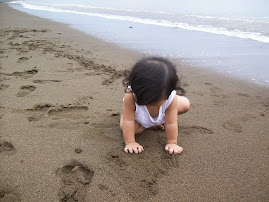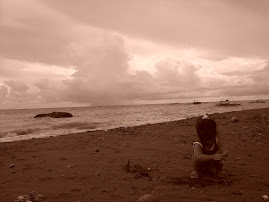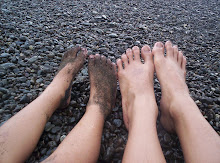
I finished reading State of Fear by Michael Crichton. The book revolves around the concept of global warming, how the threat might or might not exist, how it is hyped up by the media and environmental protection groups. As with some of Michael Crichton's books, it is filled with references to actual scientific journals and articles, graphs and very technical discussions that deals with the geothermal layer, the formation of clouds, cavitation technology, the movement of tides, temperature levels, tsunamis, the philosophy of 'state of fear,' and such stuff.
It is not a very compelling book. I read it over a period of two weeks (as opposed to Pet Sematary, which I read in a single sitting of 10 hours, with a few toilet breaks thrown in and a horrible migraine afterwards). The mind has to rest from a concept as big and as vague as global warming and its far-reaching (albeit fabricated) implications. It starts with a lawsuit to be filed on behalf of Vanuatu because it is in danger of being swallowed by the ocean because of the damage to the ecological balance brought about by global warming. Just recently I read that the island nation of Vanuatu indeed floods, but it's not solely because of the rising level of the ocean. There are factors such as it is built on a bedrock of coral, which is porous and is easily affected by rising tides, and the fact that it is slowly becoming industrialized and drainage systems have become clogged.
The novel does not make clear resolutions of the problems presented. What happened to the billionaire Mr. Morton after he was discovered alive after all? What happened to the issue of global warming? What about Nicholas Drake and his manipulations of the organization? Did our hero fall in love with Sarah or with Jennifer? Ted Bradley was eaten by cannibals, but his role in the whole thing was not exactly clear.
Did I like it? Not really. I liked his novel Prey better, if we're talking of nanoparticles and swarms and high-tech terrors. His novel Next is also a bit interesting, but not as hard to put down as the earlier ones like Jurassic Park and its sequel The Lost World.
It is not a very compelling book. I read it over a period of two weeks (as opposed to Pet Sematary, which I read in a single sitting of 10 hours, with a few toilet breaks thrown in and a horrible migraine afterwards). The mind has to rest from a concept as big and as vague as global warming and its far-reaching (albeit fabricated) implications. It starts with a lawsuit to be filed on behalf of Vanuatu because it is in danger of being swallowed by the ocean because of the damage to the ecological balance brought about by global warming. Just recently I read that the island nation of Vanuatu indeed floods, but it's not solely because of the rising level of the ocean. There are factors such as it is built on a bedrock of coral, which is porous and is easily affected by rising tides, and the fact that it is slowly becoming industrialized and drainage systems have become clogged.
The novel does not make clear resolutions of the problems presented. What happened to the billionaire Mr. Morton after he was discovered alive after all? What happened to the issue of global warming? What about Nicholas Drake and his manipulations of the organization? Did our hero fall in love with Sarah or with Jennifer? Ted Bradley was eaten by cannibals, but his role in the whole thing was not exactly clear.
Did I like it? Not really. I liked his novel Prey better, if we're talking of nanoparticles and swarms and high-tech terrors. His novel Next is also a bit interesting, but not as hard to put down as the earlier ones like Jurassic Park and its sequel The Lost World.



















